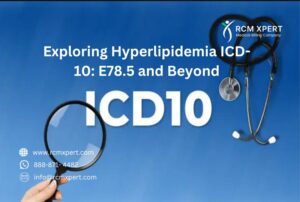Electronic Health Records (EHRs) have become an integral part of modern healthcare. As medical facilities worldwide transition from paper-based systems to digital solutions, EHR integration has emerged as a critical process. But what drives this shift, and what obstacles do healthcare providers face? Let’s dive into the top 10 reasons and challenges of EHR integration.
Why Healthcare Providers Are Embracing EHR Integration
1. Improved Patient Care: The Heart of Healthcare Innovation
At its core, EHR integration aims to enhance patient care. By providing a comprehensive view of a patient’s medical history, current treatments, and potential risks, integrated EHRs empower healthcare professionals to make more informed decisions. This holistic approach to patient data can lead to:
- More accurate diagnoses
- Reduced medical errors
- Personalized treatment plans
- Better patient outcomes
2. Enhanced Efficiency: Streamlining Workflows in Healthcare Settings
One of the most compelling reasons for EHR integration is the significant boost in efficiency it offers. By centralizing patient information and automating various processes, healthcare providers can:
- Reduce paperwork and administrative tasks
- Minimize data entry errors
- Streamline appointment scheduling
- Improve billing accuracy and speed
These efficiency gains translate to more time spent on patient care and less on administrative duties.
3. Interoperability: Breaking Down Data Silos
EHR integration promotes interoperability among different healthcare systems and providers. This means that:
- Patient data can be securely shared across various healthcare facilities
- Specialists can easily access relevant patient information
- Continuity of care is maintained even when patients switch providers
- Collaborative care becomes more seamless and effective
4. Cost Savings: The Financial Benefits of Digital Health Records
While the initial investment in EHR integration can be substantial, the long-term financial benefits are significant. Healthcare organizations can realize cost savings through:
- Reduced storage costs for physical records
- Decreased transcription expenses
- Lower risk of costly medical errors
- Improved revenue cycle management
5. Enhanced Data Analytics: Unlocking Insights for Better Healthcare
Integrated EHRs provide a wealth of data that can be analyzed to improve both individual patient care and overall public health. This data-driven approach enables:
- Identification of population health trends
- Early detection of disease outbreaks
- Performance monitoring of healthcare providers
- Evidence-based improvements in treatment protocols
The Hurdles: Challenges in EHR Integration
6. Implementation Complexities: Navigating the Technical Labyrinth
Implementing an integrated EHR system is no small feat. Healthcare organizations often face:
- Compatibility issues with existing systems
- Need for extensive staff training
- Potential disruptions to daily operations during implementation
- Challenges in data migration from legacy systems
Overcoming these technical hurdles requires careful planning, robust IT support, and a phased approach to implementation.
7. Data Security and Privacy Concerns: Safeguarding Sensitive Health Information
With the digitization of health records comes the responsibility of protecting sensitive patient data. EHR integration must address:
- Compliance with regulations like HIPAA
- Protection against cyber threats and data breaches
- Secure methods for data sharing between providers
- Patient concerns about the privacy of their health information
Implementing robust security measures and maintaining patient trust are crucial aspects of successful EHR integration.
8. Resistance to Change: Overcoming the Human Factor
Change is often met with resistance, and EHR integration is no exception. Healthcare providers may face:
- Reluctance from staff accustomed to paper-based systems
- Concerns about the learning curve associated with new technology
- Fear of decreased productivity during the transition period
- Skepticism about the benefits of EHR integration
Addressing these concerns through effective change management strategies is essential for successful adoption.
9. Standardization Challenges: Speaking the Same Digital Language
The healthcare industry lacks universal standards for EHR systems, which can lead to:
- Difficulties in data exchange between different EHR platforms
- Inconsistencies in how patient information is recorded and stored
- Challenges in achieving true interoperability
- Potential for misinterpretation of data across systems
Efforts to establish industry-wide standards are ongoing, but this remains a significant challenge in EHR integration.
10. Cost Considerations: Balancing Investment and Return
While EHR integration offers long-term financial benefits, the initial costs can be prohibitive for some healthcare providers. Challenges include:
- High upfront costs for hardware and software
- Ongoing expenses for maintenance and updates
- Potential loss of productivity during the transition period
- Difficulty in quantifying ROI, especially in the short term
Healthcare organizations must carefully weigh these costs against the potential benefits when considering EHR integration.
Conclusion: Navigating the Future of Healthcare Technology
Electronic Health Record integration represents a significant leap forward in healthcare technology. Despite the challenges, the potential benefits in terms of improved patient care, enhanced efficiency, and long-term cost savings make it a worthwhile pursuit for healthcare providers.
As the healthcare industry continues to evolve, addressing these challenges head-on will be crucial. By focusing on robust implementation strategies, prioritizing data security, fostering a culture of adaptability, and working towards standardization, healthcare organizations can successfully navigate the complexities of EHR integration.
The journey towards fully integrated electronic health records may be complex, but it’s a necessary step in modernizing healthcare delivery. As technology advances and best practices emerge, the process of EHR integration will likely become smoother, paving the way for a more connected, efficient, and patient-centered healthcare system.





